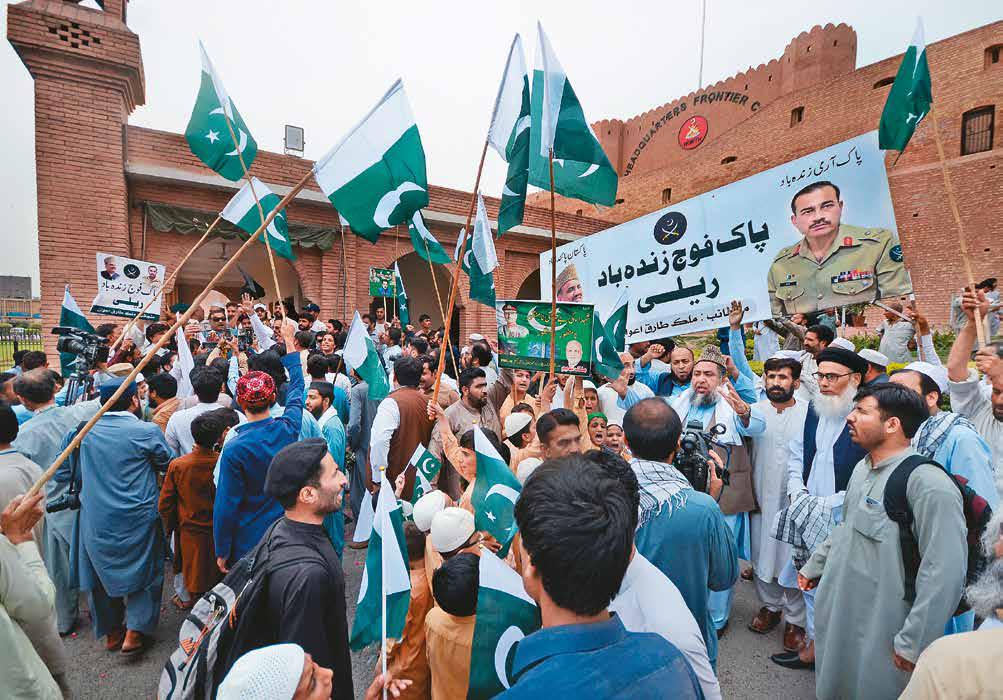
HAVE there been times when civil-military relations in India were so strained that a military coup was -justified? asks Aditya Sondhi, a senior advocate practising at the Supreme Court and the Karnataka High Court, in his new book Poles Apart: The Military and Democracy in India and Pakistan. Sondhi's book is a timely addition to the existing literature on civil-military relations in South Asia. It compares the roles the military has played in India and Pakistan and their impact on the arc of democracy in both countries. It also devotes a chapter to Bangladesh currently in the grip of a historic political churning-and the country's tryst with both democracy and military rule. Poles Apart evolved from Sondhi's research for his PhD thesis, which focused on the interface between the military and democracy in India and Pakistan during 1947-2008. The road from thesis to book was paved with revisions, updates, and a chapter on post-2008 developments.
Some of the pertinent questions Poles Apart raises and investigates are: Is there a connection between the "non-event" of a coup and the growth of democracy? Why has Pakistan been under military rule for long periods and how has this affected the survival of democracy? How did the Pakistani military get actively involved in politics and why does it wield so much influence in the country’s political space?
In the book’s well-crafted Introduction, Sondhi reminds readers that democracy is a complex business and nation states, unique. In this context, comparative politics may be a “theory in transition”, but it definitely has its uses. An analysis of similar institutions in India and Pakistan such as the judiciary, the bureaucracy, political parties, the electoral process, the culture and belief systems, and the role of the military and the extent of its intervention helps to gauge the “health of democracy” in the two countries.
This story is from the September 21, 2024 edition of Outlook.
Start your 7-day Magzter GOLD free trial to access thousands of curated premium stories, and 9,000+ magazines and newspapers.
Already a subscriber ? Sign In
This story is from the September 21, 2024 edition of Outlook.
Start your 7-day Magzter GOLD free trial to access thousands of curated premium stories, and 9,000+ magazines and newspapers.
Already a subscriber? Sign In

No Singular Self
Sudarshan Shetty's work questions the singularity of identity

Mass Killing
Genocide or not, stop the massacre of Palestinians

Passing on the Gavel
The higher judiciary must locate its own charter in the Constitution. There should not be any ambiguity

India Reads Korea
Books, comics and webtoons by Korean writers and creators-Indian enthusiasts welcome them all

The K-kraze
A chronology of how the Korean cultural wave(s) managed to sweep global audiences

Tapping Everyday Intimacies
Korean filmmaker Hong Sang-soo departs from his outsized national cinema with low-budget, chatty dramedies

Tooth and Nail
The influence of Korean cinema on Bollywood aesthetics isn't matched by engagement with its deeper themes as scene after scene of seemingly vacuous violence testify, shorn of their original context

Beyond Enemy Lines
The recent crop of films on North-South Korea relations reflects a deep-seated yearning for the reunification of Korea

Ramyeon Mogole?
How the Korean aesthetic took over the Indian market and mindspace

Old Ties, Modern Dreams
K-culture in Tamil Nadu is a very serious pursuit for many